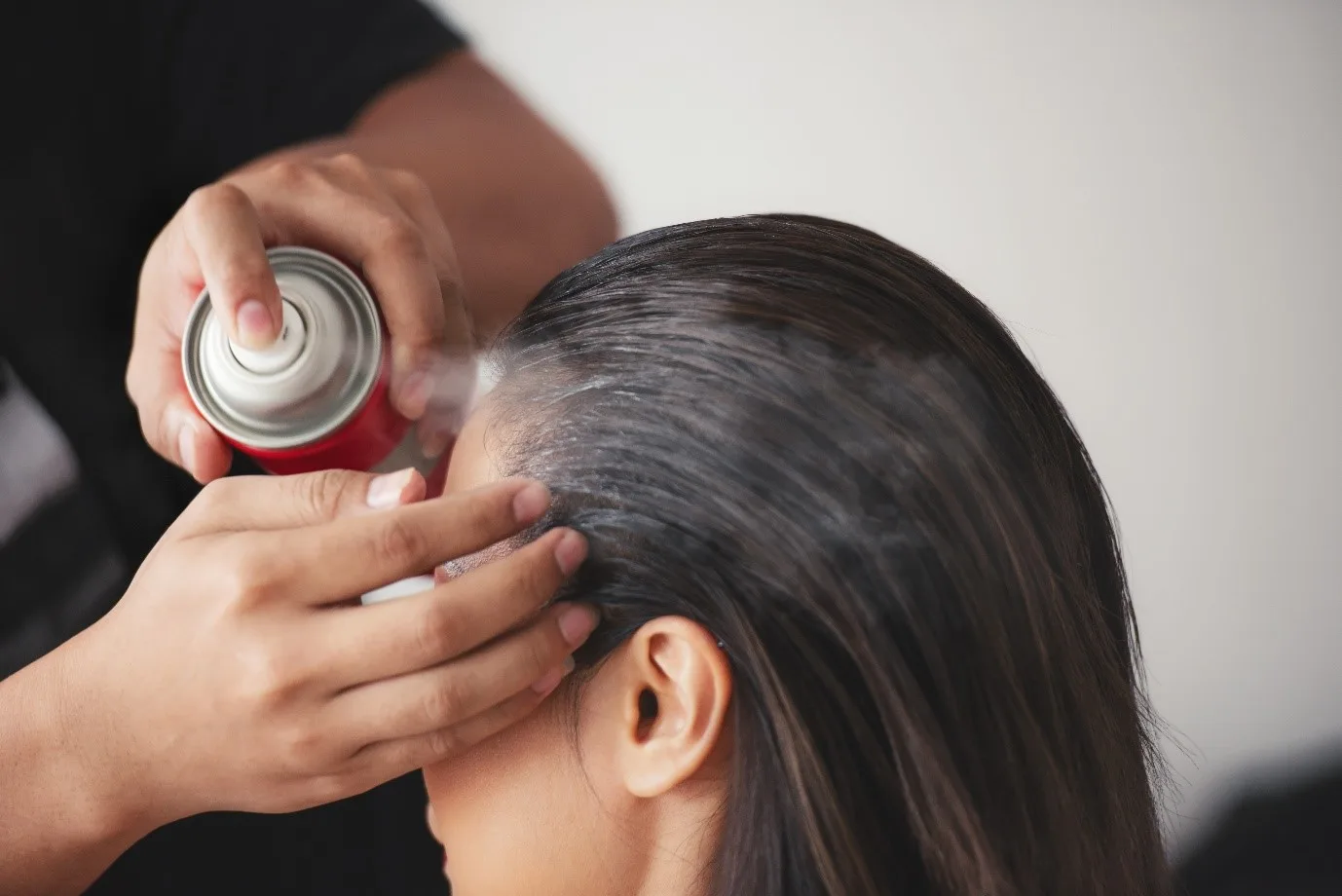SIDE EFFECTS OF HAIR SPRAY
Before using it on your head, it is important to understand the side effects of hair spray.

If you have a special occasion or a large gathering or even a day with troublesome hair, making use of a hair spray can be that quick solution to getting the perfect hairstyle. It is widely used across the world for all types of hair.
There are various forms of hair sprays available in the market, although most are alcohol based. Some contain elements that can protect you from heat and some even claim to boost your hair growth. The type of hair spray that you choose depends entirely on your hair type and what you want from it.
What does a hair spray do for you?
What does a hair spray do for you?
The effects of hair sprays are evident when you want to bring some order to your hair, but it all depends on how you use it.
- It improves your texture and adds volume to your hair.
- You get instant hold for your hairstyles that can be maintained throughout the day.
- It protects against humidity and wind, which can ruin some hairstyles.
- It can calm down your frizzy hair and bring it under control.
- You can tuck in any split ends or stray strands that might be sticking out.
- Some sprays contain supplements that can make your hair soft and reduce dullness. This could increase the shine of your hair.
- It can be used for almost any hair type and is relatively easy to use.
- The newer sprays are lightweight and friendlier on your hair.
But what are the side effects of hair sprays?
Although using a hair spray can help you in that moment of need, there are various notes of caution that often go ignored. Hair fiber spray side effects are even worse but not too many people use those. So if you’re wondering is it good to use hair spray, you should first understand the following effects of hair sprays:
-
Hair breakage and hair loss –
This is one of the biggest concerns with using hair spray. Prolonged use of hair spray can weaken your hair strands and damage the cuticle layer, leading to easy breakage of your hair strands. In addition, it can weaken your hair follicles and allow the strands to fall out. -
Strips away scalp oils –
As most hair sprays contain alcohol, it can remove all the natural oils and dry out your scalp. This can lead to an irritated scalp and even force your body to produce more oil to compensate for this dry scalp. This can aggravate your dandruff condition, as the cause of dandruff is a fungus that feeds on oil. -
Allergic reactions –
This is one of the most common side effects of hair sprays, as your body might react to the chemicals in the spray. This can lead to breakouts on your scalp and even lead to skin damage. -
Dull hair –
Although it can temporarily boost the look and shine of your hair, over a period of regular use your hair starts to lose its natural sheen. Hair sprays can strip away the nutrients and leave behind a dull looking mess. -
Dry hair –
Another concern is that these alcohol-based sprays can severely dry out your hair. As it can potentially damage the cuticle layer of your hair strands, it worsens the moisture loss from within the hair shaft. So if you keep using it on a regular basis, it can start to add more frizz and change the texture of your clean hair. -
Harmful chemical reactions –
Some hair sprays might contain harmful compounds that could be carcinogenic in nature. Some sprays also contain Volatile Organic Compounds (VOC) that can be harmful to your health and the environment. Although many companies have moved away from these chemicals, some still have them in the market. It is important to be aware of this, even when it comes to hair fiber spray side effects. -
Respiratory problems –
As most sprays are aerosols, there is a strong possibility of you inhaling the spray during application. If these chemicals get into your respiratory system, they can cause a host of problems. -
Dirt trap –
These hair sprays are usually heavy and attract a lot of germs, dust, and pollutants. All these external contaminants can get trapped in your hair and on your scalp, leading to inflammation and an itchy scalp. -
Irritant –
There is always a possibility of this hair spray getting into your eyes, nose, and throat. It can be a severe irritant, with stinging and burning sensations being common effects.
What should you do when applying a hair spray?
Although hair sprays might have negative effects, it’s not like you need to stop using it completely. You just need to be careful with how you use it. Here are some hair care tips for the same.
- Avoid applying it directly onto your scalp. It’s a hair spray, not a scalp spray. This can reduce the chances of your scalp drying out and you needing to search for a way on how to remove dandruff.
- Don’t use excessive amounts. Only apply what you think is necessary.
- The main thing is to ensure that you don’t use it too often. This is one of the biggest mistakes everyone makes. If you’re wondering, is it bad to use hairspray everyday, the answer is yes.
- After you’re done with it, make sure to wash it off with a gentle hair and scalp shampoo. Ensure that the products don’t react with each other and cause even more problems.
- See if you can find products with natural ingredients that put your hair through less stress.
- Always do a patch test on some part of your body to make sure you are not allergic to any chemicals in the hair spray.
- Research the product before you use it and check the ingredients.
- Try to apply this in a ventilated room so that you reduce the chances of inhalation.
- Find a spray that contains vitamin E or silicones as these could help with restoring the shine of your hair.
However you choose to use these hair sprays, it is important to keep your head clean at all times. Using a hair spray on unhealthy hair can make your problems even worse. Use a shampoo like the Head and Shoulders Anti-Hairfall that keeps your head clean, reduces breakage and give you stronger hair. Or try the Head and Shoulders Silky Black to soften and restore damaged hair, while leaving you dandruff free.



